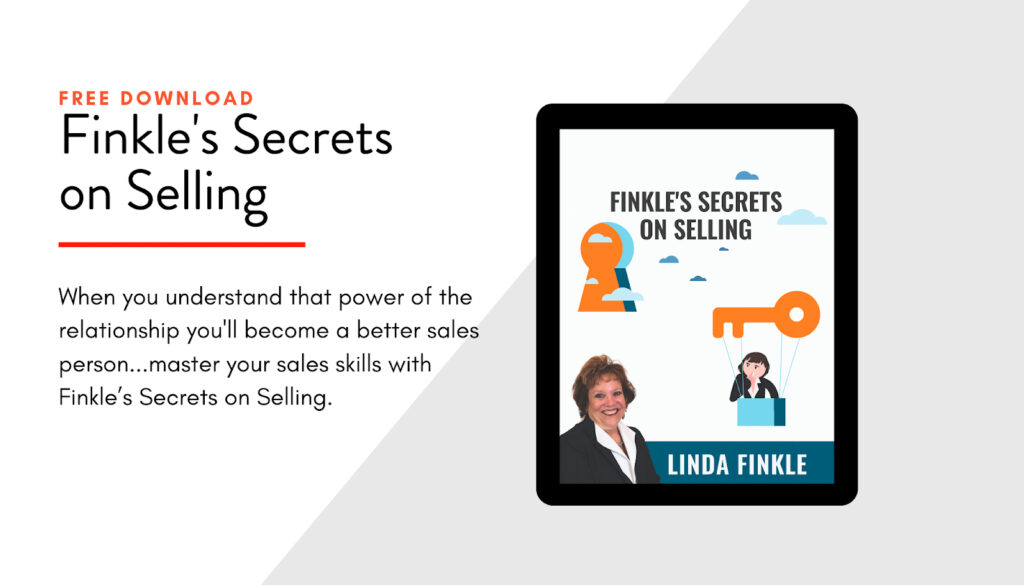Nobody wants to believe they are making bad sales calls.
You psych yourself up to make sales calls, dial the phone countless times, and finally get a live person on the phone. Or you finally get a meeting with a prospect you have been trying to nail down for weeks. Obviously, the goal is to sound and be brilliant and to have a successful outcome, and what if you don’t? What if, instead of the outcome you want, it goes poorly and downhill from there?
What Makes a Bad Sales Call?
There are two categories of bad sales calls. First are the ones that shouldn’t have been made in the first place or calls that should have been terminated before they got as bad as they did. The second category, the one we are going to discuss today, is the one that you had a chance to impact in a positive way and you didn’t.
Not every sales interaction is going to be successful, success is measured by whether they either buy or you go to the next step with them. AND every sales call can and should be positive…or at least not bad.
Causes of Bad Sales Calls
Here are four major reasons for bad sales calls. While I’m sure there are others, these are the ones I see most often.
Poor Planning or No Planning
Great salespeople plan. They plan who they are going to contact. They plan for why they are contacting them, what they are going to say, possible objections that may come up and how to handle each. If they have a meeting scheduled with a prospect, they have a plan for that meeting.
In sports, besides practicing, coaches plan. Before a game starts they have a strategy for what players go out first, what plays they are going to run, etc., etc. A baseball team wouldn’t simply go out and begin swinging a bat without having a clear plan. Bad sales calls are often the result of poor, ineffective, or no planning.
More Time Talking than Listening
Many salespeople talk too much. Maybe they are nervous. Maybe they haven’t planned well. Perhaps they like to hear themselves talk or believe they have something important to say. The reason a salesperson talks too much is not important. What is important is that poor sales calls are often a result of the salesperson talking too much.
If you are talking, you aren’t listening. If you aren’t listening you miss clues and queues that may help you move the sales process along. Tone of voice, word choices, hesitations…a whole host of things that can give you insights as to what the prospect is thinking and feeling.
In the end, many sales interactions end poorly because the prospect talked too much, talked over the prospect, did not listen well, or simply was not paying attention.
Not Asking Questions
When I train sales people or go on sales calls with them, what I consistently hear is they simply do not ask enough questions. They want to focus on their product or service and tell the prospect all the great features about it, thinking this will make them want to buy.
Questions are used to uncover needs, determine what the prospect knows about your product or service (have they purchased something similar in the past, for instance), what is their challenge or gap that your product/service will solve, and what have they done thus far to solve the problem…there are many reasons to ask questions and types of questions to ask.
You have to ask little and big closing questions. How many sales were lost or simply went nowhere because the salesperson never asked “what’s the next step” or “by when will you review the proposal”? Quit telling and start asking questions. And, oh, by the way, if you are asking questions you aren’t talking so much and it will force you to listen more.
Annoying the Customer, Before They Become a Customer
Look, I get it. The job of a salesperson is to sell. And when you finally get that prospect on the phone or in front of you, it’s time to sell, maybe.
We aren’t selling to machines, we are selling to people. This is rule number one in sales. Remembering this means that people buy from people they know, like, and trust. How do they get to know, like, and trust you? Little things matter. Make sure you have the correct pronunciation of their name. Asking (if you are calling them) if you caught them at a time when they can talk. Letting them know why you are calling. These are just a few things to consider.
People want to be treated well. They want to feel as if you care about them, not just getting into what you want to say. Have you ever answered the phone and before you could say a word, the person on the other end began talking about what they were selling? How did it make you feel? Annoying someone by forgetting about the personal touch and being a human first will mean the beginning of the end.
What Can You Do?
Bottom line…you need to be more concerned about the other person than yourself or whether you sell them anything. I know that may seem counterintuitive and yet I promise, it’s the first step in preventing bad sales calls.
Animals know when you are afraid of them and whether you like them or tolerate them. Human beings are just as aware. They sense your fear that you may not close the sale, they sense your neediness and they know whether you genuinely like other people or they are a means to an end. No one wants to feel pressured or that they are not more important to you than a name on a piece of paper.
Caring more about the sale or getting through your presentation rather than the person will negatively affect your bottom line as it leads to bad sales calls. You have a choice.
Until next time…
Want More Selling Tips?
I have created a list of my top tips that I have personally used over and over again to become a top salesperson.









